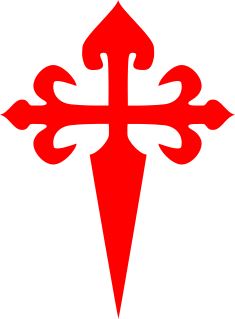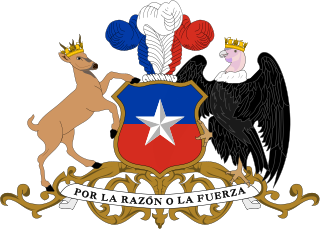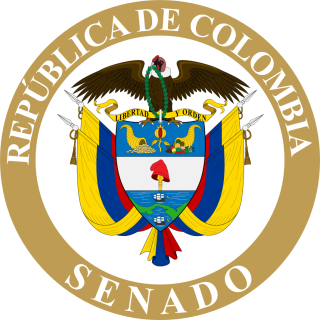
The SNK European Democrats is a political party in the Czech Republic, led by Zdeňka Marková. The first regular chairperson of this party was Jana Hybášková. The party was created in January 2006 by the merger of two Czech political parties – SNK Union of Independents, led by the former Foreign Minister Josef Zieleniec, and the European Democrats, led by Jan Kasl, the former Mayor of the City of Prague.
The Liberal Party was a conservative political party of Brazil, merged (2006) in the Party of the Republic. The Pentecostal Universal Church of the Kingdom of God heavily influenced the party after 1999. In the 2002 election, José Alencar of the PL was the running mate of Lula da Silva and became the vice president. At the legislative elections, 6 October 2002, the party won 26 out of 513 seats in the Chamber of Deputies and three out of 81 seats in the Senate of Brazil and supported Luiz Inácio Lula da Silva's government. Some of its members were investigated following corruption allegations and suspected involvement in the so-called "Mensalão scandal". The Universal Church has now partially left PL to create a new party named Brazilian Republican Party (PRB) in 2005.

The Authentic Radical Liberal Party is a centrist liberal political party in Paraguay. The party is a full member of Liberal International. The liberales, as they are known, are the leading opposition to the dominant conservative Colorado Party. They have taken this position since the end of the Alfredo Stroessner dictatorship in 1989. They are the political successors of the Liberal Party.
The National Encounter Party is a political party in Paraguay.

Legislative elections were held in Romania on 30 November 2008. The Democratic Liberal Party (PDL) won most seats in both the Chamber of Deputies and the Senate, although the alliance headed by the Social Democratic Party (PSD) won a fractionally higher vote share. The two parties subsequently formed a governing coalition with Emil Boc of the PDL as Prime Minister.

The Conservative Party of Chile was one of the principal Chilean political parties since its foundation in 1836 until 1948, when it broke apart. In 1953 it reformed as the United Conservative Party and in 1966 joined with the Liberal Party to form the National Party. The Conservative Party was a right-wing party, originally created to be the clericalist, pro-Catholic Church group.

Libertarian, Direct, Democratic is a conservative-liberal, libertarian, and right-wing populist Flemish political party in Belgium.
The Democrats is a political party in Brazil. It was founded in 1985 under the name of Liberal Front Party from a dissidence of the defunct PDS, successor to the ARENA, the official party during the military dictatorship of 1964–1985. It changed to its current name in 2007. The original name reflected the party's support of free market policies, rather than the identification with international liberal parties. Instead, the party affiliated itself to the international federations of Christian democratic (CDI) and conservative parties (IDU). The Democrats' identification number is 25 and its colors are green, blue, and white.
Elections were held on 5 December 1964 to elect members to half of the 60 seats in the Australian Senate. There was no accompanying election to the House of Representatives, as Robert Menzies had called an early House-only election the previous year. As with the previous Senate election, the Coalition held exactly half of the seats in the chamber; the Democratic Labor Party and independent senator Reg Turnbull held the balance of power.

Parliamentary elections were held in Colombia on 10 March 2002 to elect the Senate and Chamber of Representatives. The Liberal Party remained the largest party but lost its majority in both houses, winning won 54 of the 166 seats in the Chamber and 29 of the 102 seats in the Senate.

General elections were held in Belgium on 1 June 1958. The result was a victory for the Christian Social Party, which won 104 of the 212 seats in the Chamber of Representatives and 53 of the 106 seats in the Senate. Voter turnout was 93.6% in the Chamber election and 93.7% in the Senate election. Elections for the nine provincial councils were also held.
The Radical Liberal Party was a political party in Paraguay. It was the largest legal opposition group during the Stroessner regime, but disappeared soon after he was overthrown.

Legislative elections were held in Romania on 9 December 2012. The Social Liberal Union of Prime Minister Victor Ponta won an absolute majority in both the Chamber of Deputies and the Senate. Despite the severe weather in parts of the country, the turnout was at 41.7%, higher than the last legislative elections held in 2008 which saw a presence of 39.20%.

Full general elections were held in Belgium on 2 June 1912.

General elections were held in Belgium on 10 December 1857, the first full general elections since 1848. The elections were called by royal order of 12 November 1857, dissolving the Chamber of Representatives that had convened in a new session only two days earlier.

Legislative elections were held in Belgium in June and July 1884, for partial Chamber and full Senate elections respectively. Voter turnout was 79.1% in the Chamber of Representatives elections, although only 69,276 people were eligible to vote.

Parliamentary elections were held in Colombia on 26 February 1978 to elect the Senate and Chamber of Representatives. The result was a victory for the Liberal Party, which won 111 of the 199 Chamber seats and 62 of the 112 Senate seats.

Parliamentary elections were held in Chile on 6 March 1949. Although the Social Christian Conservative Party received the most votes in the Senate elections, the Liberal Party won the most seats, whilst the Radical Party remained the largest party in the Chamber of Deputies.

Parliamentary elections were held in Chile on 1 March 1953. The Agrarian Labor Party emerged as the largest party in the Chamber of Deputies, whilst the Liberal Party won the most seats in the Senate.














